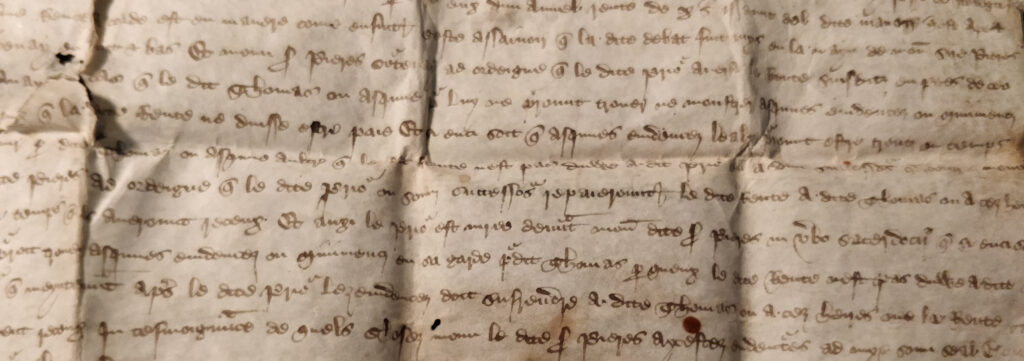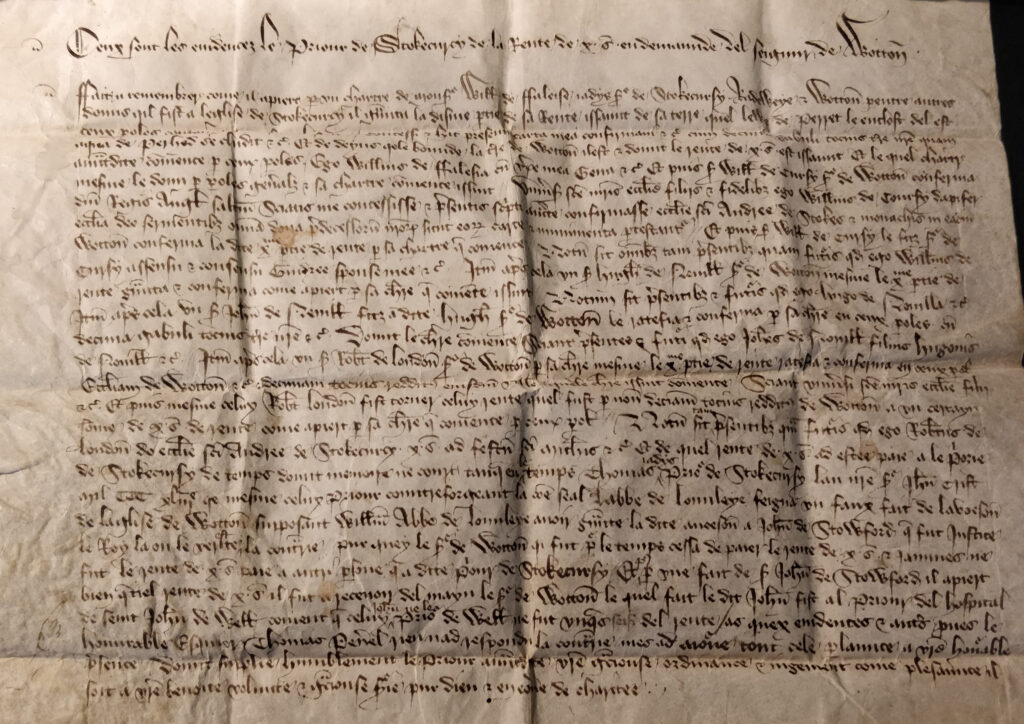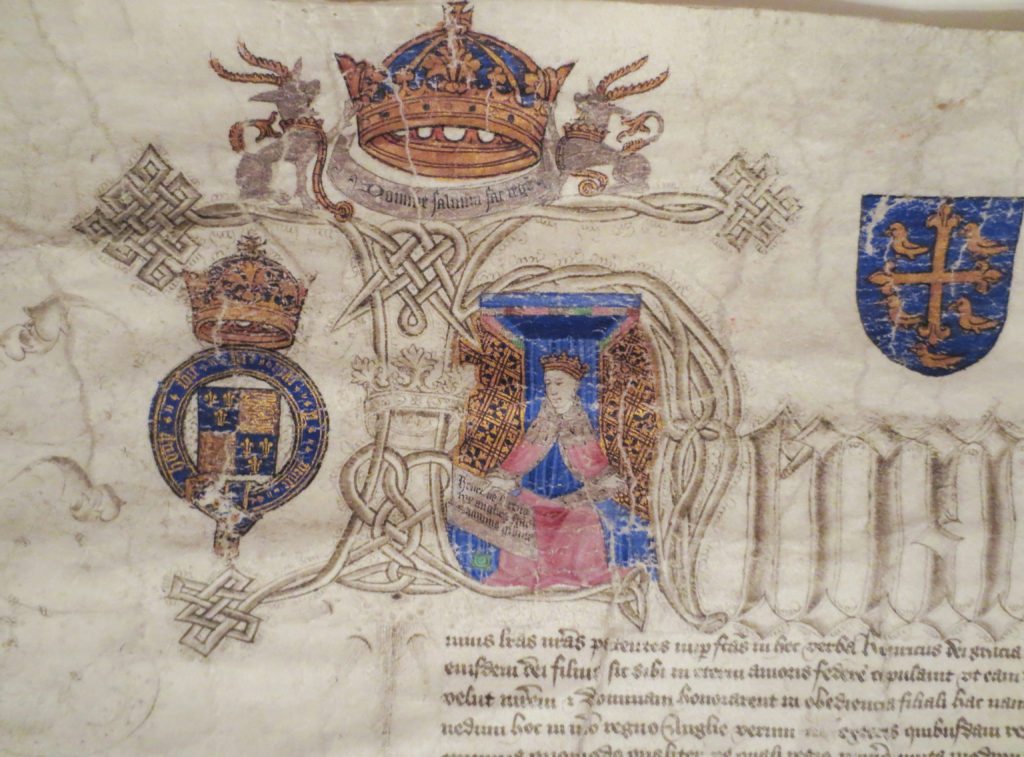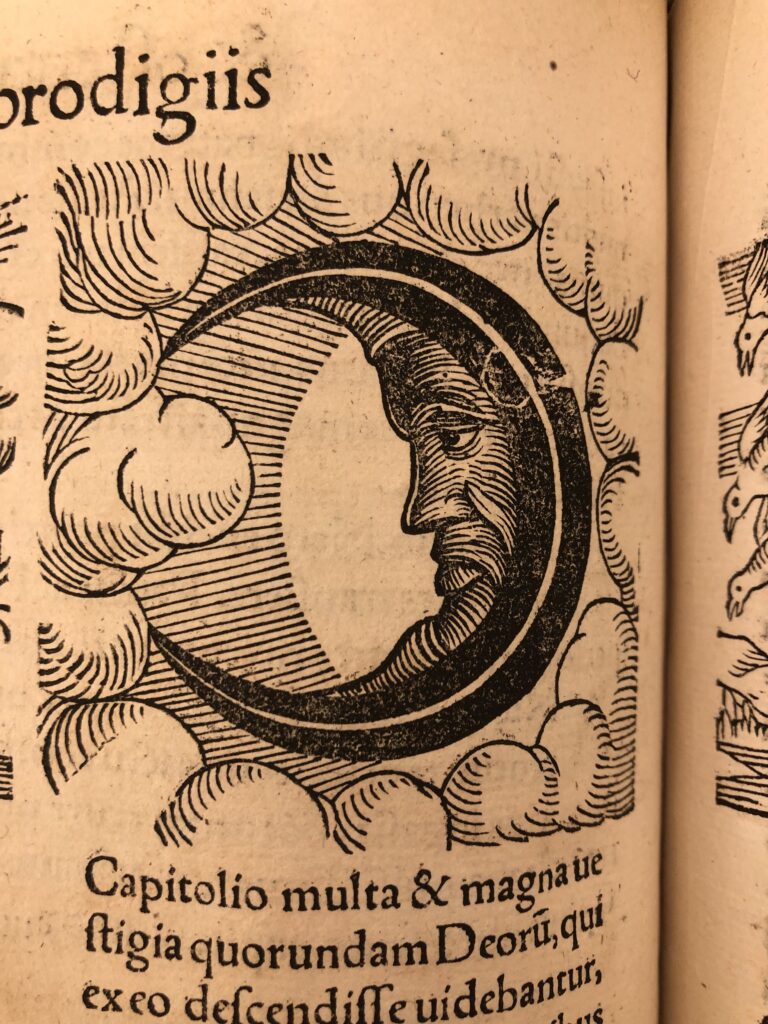
(Close-up of the document’s text)
Anglo-Norman French, not something I had ever really come across until hearing Dr Heather Pagan’s talk at Magdalen College. In fairness, I had only come across the Anglo-Normans briefly when in primary school, which was a fair few years ago, and being about 7 years old, always presumed they spoke modern-day English. But of course they wouldn’t speak this modern English! It was 1066, England had just been conquered by William the Conqueror, and we now had a Norman King! After the invasion of 1066, the Normans brought with them many things, motte and bailey castles, their own names – Richard and Robert rather than Æthelwulf and Beowulf -, and of course, they brought their language, French.
If you’re like me, you would think that all medieval documents were written in Latin, but this is not true. When documents started to be created by the government in the 12th century, Latin was the language of scholars, whereas “French” was the language of management. I say French, but this was the Anglo-Norman language, a type of French which had an Anglo influence. Whilst similar, this was not the same as continental French. It was mainly used by the noble class from the 12th century to the 15th, up until the Black Death and the increase in use of English.
Identifying Anglo-Norman is not the easiest of tasks, we can look at the phonology, such as consonant substitutions, such as “K” being used rather than “Qu” (Ki/Que). But there are also vowel differences, which you can see if you compare Parisian French Profond with the Anglo-Norman French Profound. Anglo-Norman would use the –ou rather than just –o.

But whilst we may think that the use of Anglo-Norman French died out centuries ago, this language had such a great influence on English, that in a way, Anglo-Norman French is still in use today. About three-quarters of Norman-French words are still used in the English language today, such as castle (old French: Castle/Chastel), forest (old French: Forest), and as seen above profound (old French: profound). Modern English still uses some old French words which have disappeared from the modern French language, such as dandelion, solace and gone.
It’s certainly not something you come across every day, but it is interesting to see how Anglo-Norman French was the main language in administrative England from the 12th century, died out in the 15th century only to live on through its influence on the English language and in a way, is still seen and used today.
Eliza Kettle
Archives Assistant



